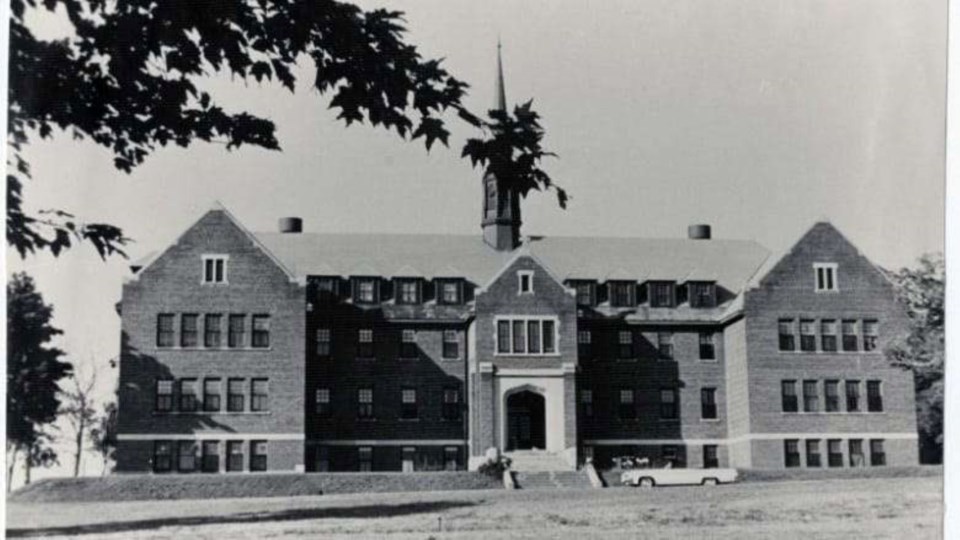SAULT STE. MARIE — Ketegaunseebee (Garden River) First Nation recently announced they will be hosting a Survivors’ Gathering at the Delta Waterfront in Sault Ste. Marie from July 30 to Aug. 1.
The event is open to residential school survivors from any community.
Ketegaunseebee’s cultural manager, Darrell Boissoneau, told Dougall Media the event is largely about education.
“It’s a learning experience for those who are aware of what the residential schools were about and the impacts that they’ve had on our communities. This is also an opportunity to come and hear some keynote speakers and to get in some fun events as well. A good line up of presenters are coming to share their knowledge with us,” he said.
“We thought it would be a good idea to bring together some experts as well as survivors to share their stories.”
Some of the keynote speakers on the docket include Sol Mamakwa, member of provincial parliament for Kiiwetinoong and a residential school survivor himself; Dr. Scott Hamilton from Lakehead University in Thunder Bay, a leading researcher in the ongoing search for unmarked graves; and Kimberly Murray, the Special Interlocutor on Residential Schools Unmarked Burial Sites for the federal government.
Boissoneau described the upcoming event in Sault Ste. Marie as “survivor-focused.”
“There’s an enormous amount of information – or lack of information – on the idea of the search for missing children and unmarked graves. When Kamloops was exposed – 215 (unmarked graves) – it sent a shockwave across the country and communities were left to react as opposed to be responsive to what was happening,” Boissoneau said.
Boissoneau is at the head of Ketegaunseebee First Nation’s search for missing children and unmarked graves – with a focus on the former Shingwauk Indian Residential School and Wawanosh School for Girls.
He addressed a misconception some people have about how these investigations should unfold.
“The ground search is an important part of it and there’s this mad rush for many projects to do the ground search but we’re finding out through education that perhaps ground search is one of the last things that you do.
“And, that we need to pay more attention to records, the mapping of the site, and listening to survivors stories,” he said.
Wawanosh School merged with Shingwauk in 1900 and was operated by the Anglican Church of Canada until it officially closed in 1970.
Boissoneau said Ketegaunseebee is one of the leading communities when it comes to search efforts.
“It’s always about the truth – in search of the truth – and that’s what survivor stories are about. It’s about the truth. We’ve also had this great opportunity to attend the national gatherings that have been hosted by Kimberly Murray. She’s in the final stages of her mandate in terms of completing her work and the work that she has done – collecting information over the last couple of years – really corresponds to the work that’s happening on the ground,” he said.
He added that Murray’s research has revealed a “troubling” trend of denialism in some Canadians when it comes to the existence of residential schools.
He said that’s why it is critical to continue sharing information and giving survivors a platform to tell their stories.
“Education and awareness need to be created in our communities so the younger generation understands what happened in Indian Residential Schools – and, probably in day schools as well because many of our communities had day schools too.
“The larger picture, I think, is where else this is being taught. Bits and pieces are being taught in different educational institutions – like universities and colleges. I think there’s a big gap in high schools and elementary schools. That’s where we need to develop the curriculum – ‘we,’ meaning those who are survivors from those communities and First Nations who are involved, need to develop the curriculum. Then, customize it to different levels of education. And, it needs to be taught by our people.
“If there’s a survivor out there who has the ability to teach then they should be at the forefront. If not, it should be one of our people from our communities,” he said.
Boissoneau said the onus is on the provincial government to work with First Nations communities in educating the public.
“I strongly believe that the province needs to change its legislation and accept the curriculum that we’re developing so that it is taught and it’s mandatory in schools – so people can understand the truth of what happened here in Canada,” Boissoneau said.
In the meantime, Boissoneau said the upcoming Survivors’ Gathering goes hand-in-hand with reclaiming and achieving Chief Shingwaukonse’s original vision of a site for cultural/cross-cultural education and learning.
Shingwaukonse led the people of Garden River during the War of 1812 and was a strong advocate for the preservation of First Nations’ language and culture.
“That’s why it’s important for people to understand that this sacred vision came from Garden River and needs to be led by Garden River,” he said.
Due to capacity concerns, the Survivors’ Gathering will be capped at 200 registrants.
However, Boissoneau said there are currently 122 people registered so there is still time to sign up.
To register for the event, visit the following link: gardenriver.live/reg.
A National Residential School Crisis Line has been set up to provide support for former residential school students. You can access information on the website or access emotional and crisis referral services by calling the 24-Hour National Crisis Line: 1-866-925-4419.
